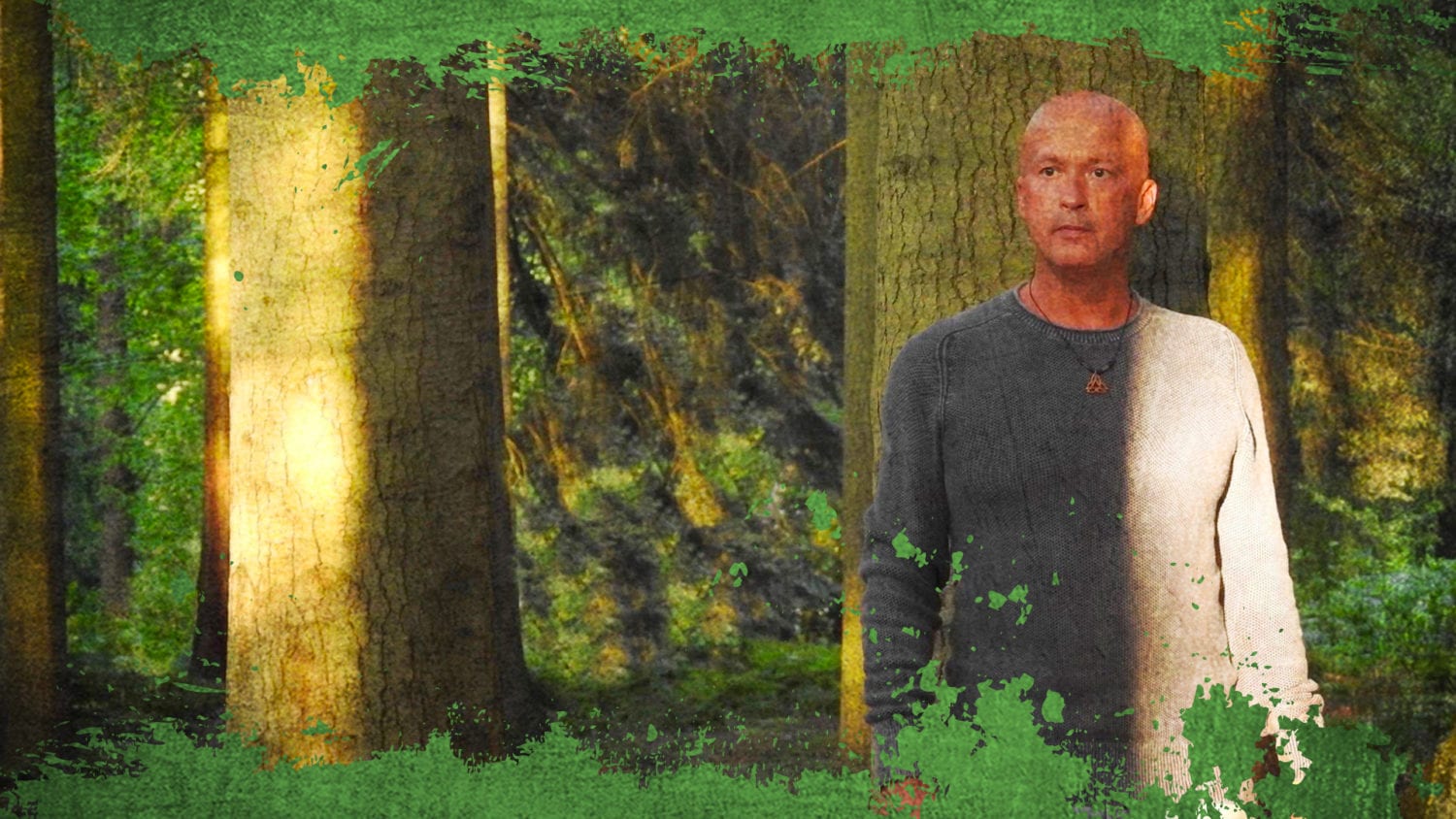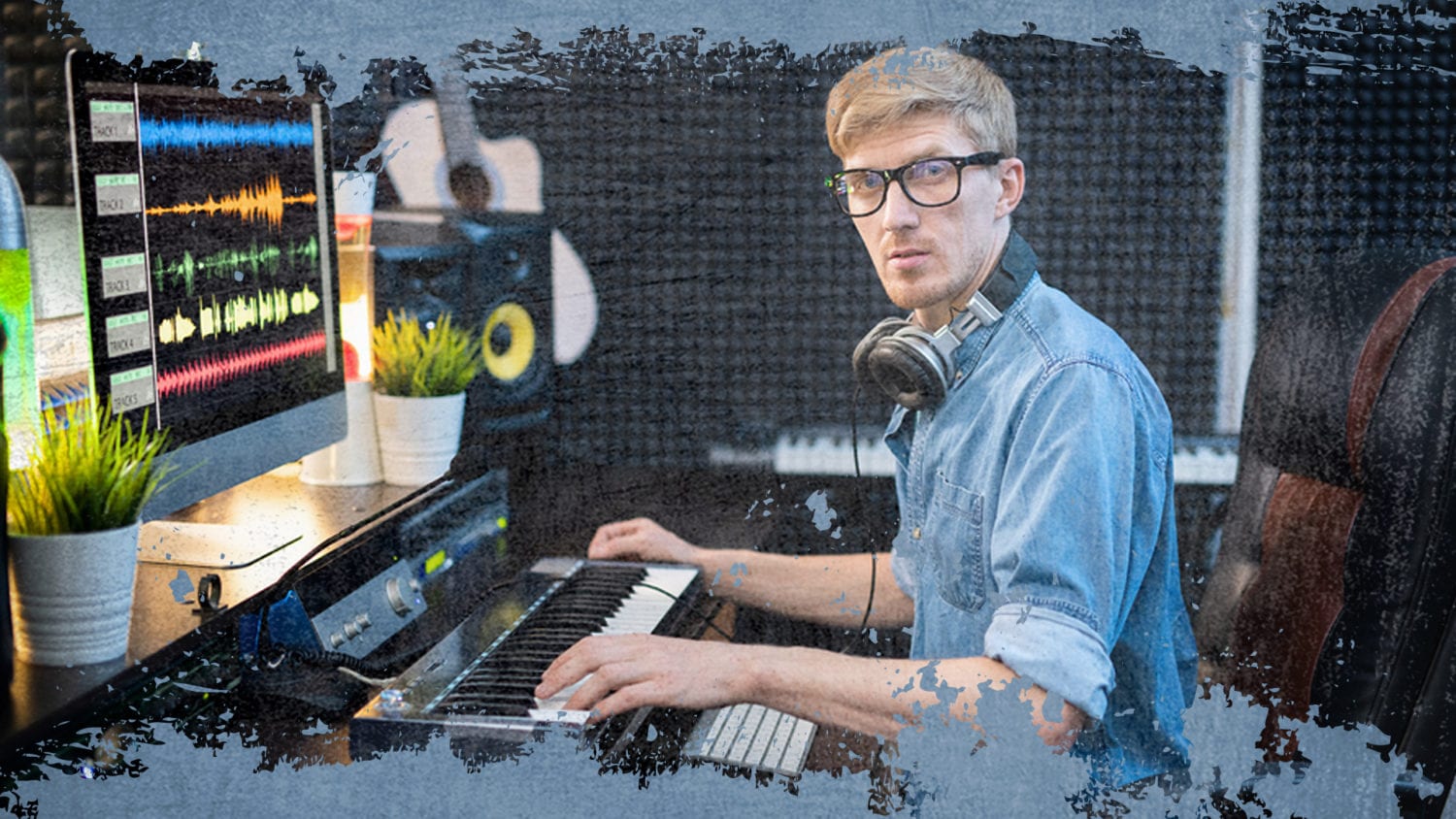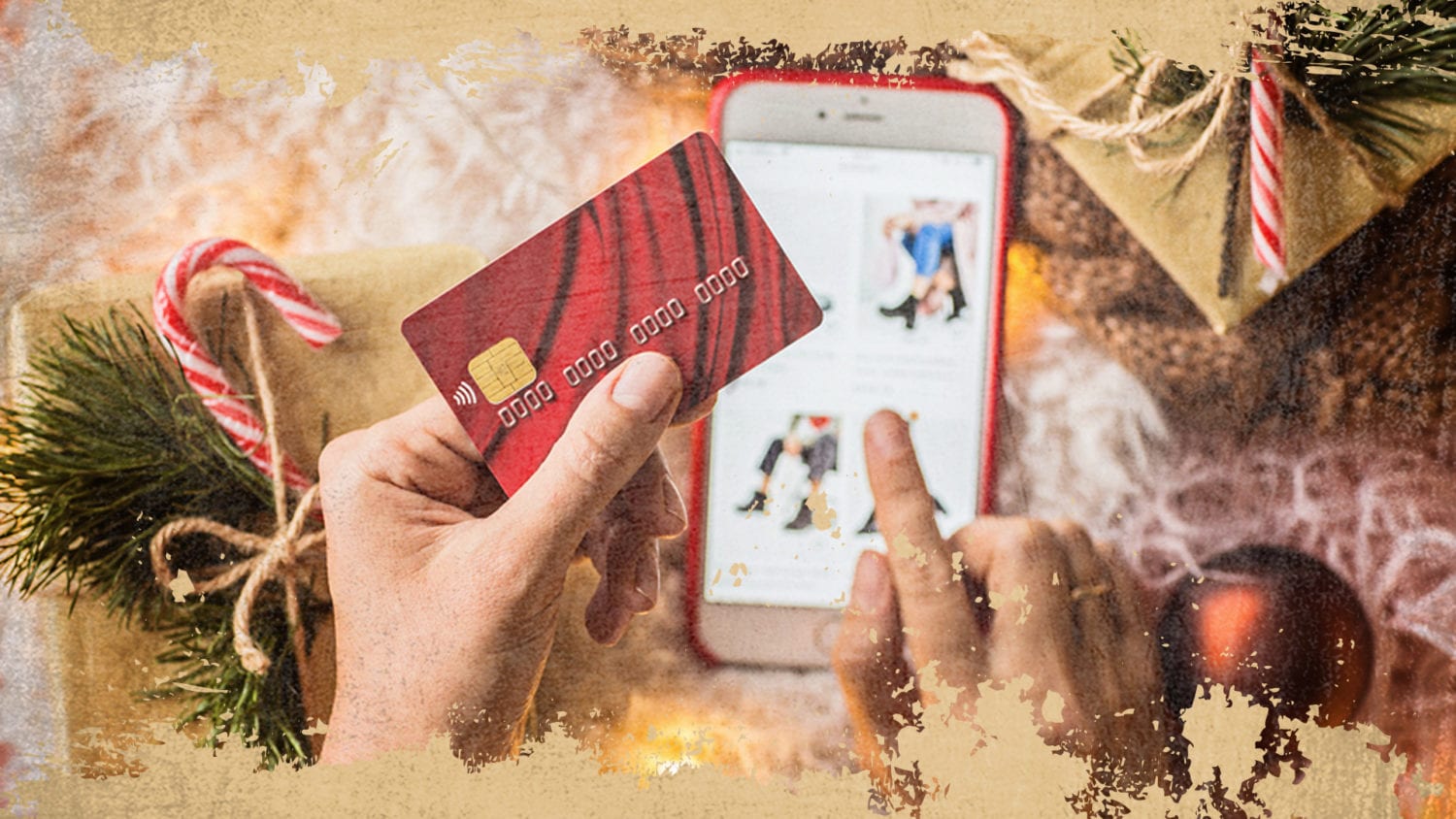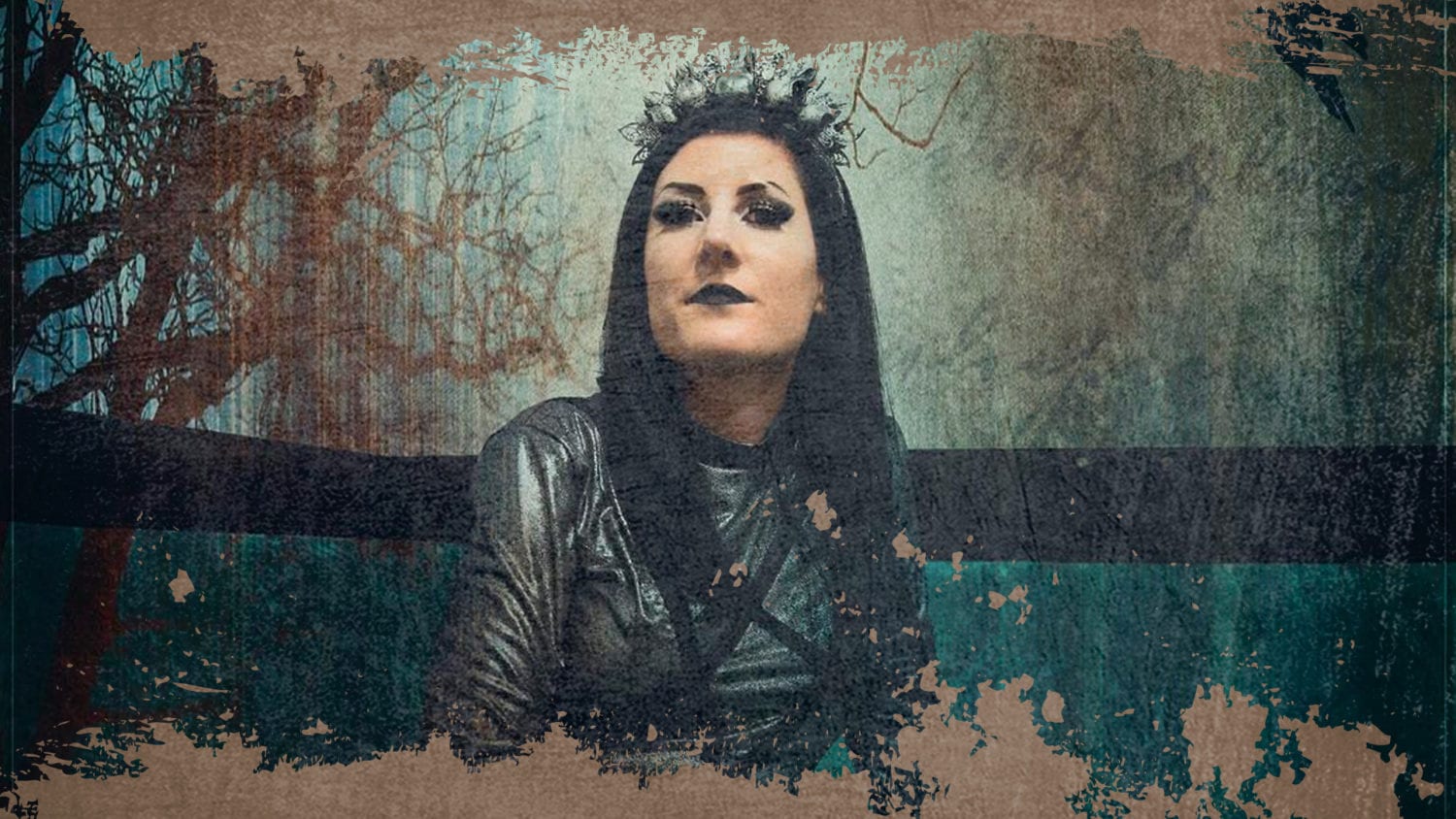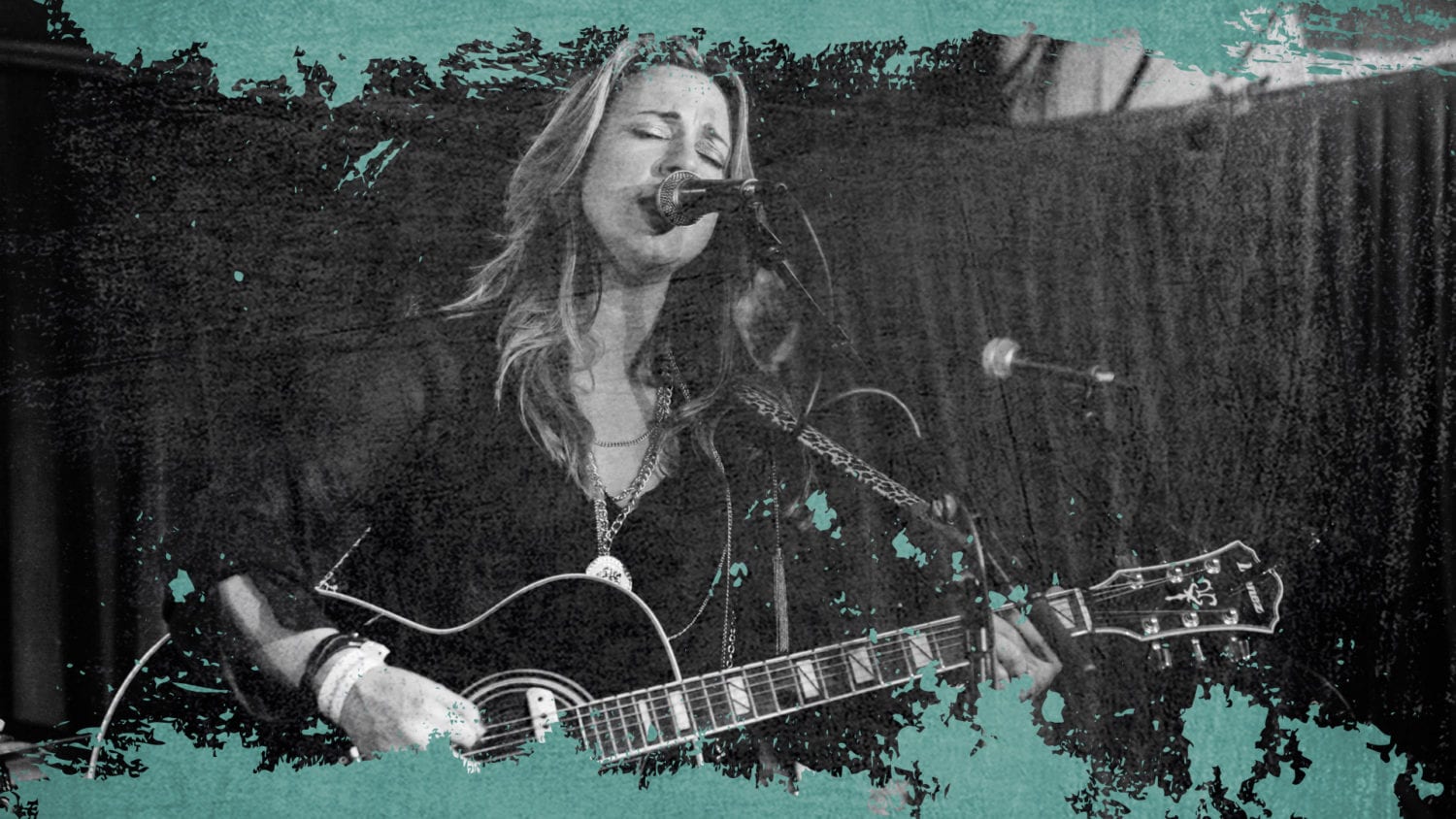
Continuing last weeks episode on Leah’s new sister brand product, Mythologie Candles, Leah and C.J. go further in depth analyzing the details of how she achieved what she called “a million dollar day.” Listen to find out what she means by that.
It would be great if you could live off of selling your music alone, but these days anything you can do to earn an income as an independent artist should be explored. Take your understanding of creating a sister brand to the next level in this week’s episode of The Savvy Musician Show.
Key Points From This Episode:
- Principles trump tactics
- Minimum Viable Product
- Gauging interest in your product
- Tapping into an existing culture
- Creating a seed audience
- Hashtags and DM’s on Instagram
- Doing a pre-launch/Bootstrapping
- Running an opt-in ad
- What is a million dollar day?
- Sharing content related to your culture to build an audience
- Thinking Big
Tweetables:
“Principles trump tactics.” – @LEAHthemusic [0:04:48]
“If you can’t create culture, tap into an existing one.” – @LEAHthemusic [0:15:26]
“Hashtags help a lot on Instagram, using hashtags that people are interested in.” – @LEAHthemusic [0:15:33]
“I would personally DM them, thank them for following me… And the fact that there’s DMs happening, Instagram will now show your stuff in their feed more often because there’s been interaction.” – @LEAHthemusic [0:17:59]
“It’s called bootstrapping. You hold a pre-launch and however much people buy, there’s your capital to get the manufacturing done.” – @LEAHthemusic [0:19:04]
“You got to wonder why people rush headlong into dismissing something that successful. Is it because they’re scared that there’s work involved?” – @metalmotivation [0:30:05]
“We look ridiculous dressed up in excuses.” – @metalmotivation [0:30:22]
“However big you think you’re thinking, it’s not big enough and you can’t be afraid to engage in limitless thinking, you can’t. The more limited you are in your thinking, the more limited will be your results.” – @metalmotivation [0:31:32]
Links Mentioned in Today’s Episode:
Book a Call With Us — http://www.CallSMA.com
Mythologie Candles — mythologiecandles.com
Lora Hodges (Elite Student) — https://www.facebook.com/lorussmusic
Inner Circle Membership — https://savvymusicianacademy.com/innercircle
Click For Full Transcript00:21 CJ: Welcome to the Savvy Musician Show, this is C.J. Ortiz, I’m the branding and mindset coach here at the Savvy Musician Academy. I’m joined once again by her eminence, my favorite music marketer, Leah McHenry, good to see you, Leah.
00:33 Leah: Great to see you too and this should be fun.
00:36 CJ: I’m real excited about this. Again, we cheat, we talk offline beforehand, so we’ve got to be careful sometimes because we can talk some of the best stuff offline, and also we have to save our energy and enthusiasm for the actual show. But this is going to be a follow up to a previous episode that we did on creating a sister brand, which I think, Leah… Probably going to be a new concept still for most people. I think they’re just trying to wrap their heads around how in the world can I make money selling my music? And then they’ve got to open their mind to the fact of selling apparel and merchandise, accessories, other items, print on demand type things in order to further monetize their music and make the kind of numbers that you’ve made in the past.
And now we’re talking about something else, a sister brand, which is not necessarily based on music itself but is based on the culture and lifestyle related to the music that you make. We’re going to get into that actually by probably one of the best examples, one that’s happening right now as we speak, which is Leah’s Mythologie Candles operation. You’re going to be thrilled to hear about, again, amazing results. I’m not surprised guys, this is not just a, let’s pat Leah on the back example, she got tremendous results, it’s going to blow you away. And the purpose is to show you what she has always said which is, “Once you learn how to market, once you learn how to master online marketing, you can pretty much sell anything. You’ll never be without a job, you’ll never be without a way to earn an income.” It’s important for you to understand that.
But before we dive in Leah, let me just share a student spotlight. This is Lora Hodges, one of our Elite students and she writes, “#win, I’m super excited that our Shopify store is officially open and we have a few print-on-demand products and our digital single on it. We will be announcing our physical CD, our debut, the end of this month. Working on our email list. I would never be doing any of this had I not met Leah. I’m also grateful for all the fellow Elites and coaches who share experiences for us all to learn from and to encourage each other.”
She’s fairly new, I think just a few months I did have a coaching call with her and very talented singer, has kind of an Adele-like voice and very, very capable. So I think she’s going to do well, it’s obviously a pop type sound so she can reach a more mainstream audience. But she’s diving in and she’s realizing wow, and some of these basic things are things she’s never ever done.
03:20 Leah: Yeah. That is awesome. I’m proud of you Lora.
03:22 CJ: It’s not weird how somebody can have talent, Leah, have ability, prove it, be in a band or something like that and yet maybe even go to their graves and never ever fulfill that career that they always wanted, simply because the music industry is the way it is. There was options out there, but they’d never heard of these things before, right?
03:49 Leah: Yeah.
03:49 CJ: And so they can go through their life, always think it wasn’t meant to be, it’s just not in the cards. All of this fatalistic destiny stuff that people tell themselves, all the while it really came down to, if you understand the principles, then you can create desired outcomes and it’s as simple as that. So one of the great ways to prove this is to show how these things can happen with a sister brand. And in this case, again, Leah, your example of Mythologie candles, which is a fairly new operation. For those of us who know you behind the scenes, we’ve seen you working on this for a few months now, but now you just, you went into pre-launch release mode, finding an audience, doing all this stuff. So I’m going to ask you to kind of unpack this for us. First of all, what is Mythologie Candles?
04:39 Leah: I’m so excited to talk about this and I think before I even get into it, I think I want to give you a takeaway right now, and that is that principles, trump tactics. Principals, trump tactics, because tactics go out of style every five minutes. Facebook changes something every single day. They move the buttons around, they move everything around and you don’t know where anything is and they take away features and so many people are like, Oh, we’re screwed. No, you’re not, if you know the principles of marketing, eCommerce, just basic stuff, copywriting, basic things, how to sell, how to make a sale, basic psychology. And you don’t have to go to school for any of this stuff, you don’t need a university degree. I don’t have any degrees. I got nothing under my belt. Sorry. This is the school of hard knocks that I went through and I’ve spent a lot of money in coaches and mentorships and other programs to try and glean what I could and boil it down to the things that work. So I just want to give you that takeaway right now.
And that’s why our whole Savvy Musician Academy, including the Elite program, The Online Musician, they’re mostly all principle-based, and we teach you what’s working right now. Now that’s a tall order for me as a coach and for all of us coaches at SMA teaching you principles that are timeless, no matter what you do, and teaching you what works right now. So that’s the challenge, and that’s why SMA exists is because you need both, but if I had to pick it’s principles. I’ll take principles all day long because then it doesn’t matter what I’m doing, I can apply it, I’ll figure it out, I’ll figure the rest out.
06:13 CJ: I think that’s an important thing to note and I think we’ve hammered that before and it’s still something that I don’t think the coin has quite dropped yet for people. They still think there’s a secret. They still think there’s a … And one of the things I hate to see Leah is hacks. I mean I appreciate them for what they are, but it’s not a long-term approach, these are short-term approaches instead building off of things that work. People have been buying things for centuries. Okay?
06:41 Leah: Yeah, that’s right.
06:41 CJ: So marketing is always a part of it, and all we have to do is again, do the things that help to create conversions, principle-based. So again Leah is applying this now to her sister brand Mythologie Candles, which is obviously a candle making operation. So you’re selling actual candles, this is not print on demand, this is something you’re actually making yourself.
07:05 Leah: Yeah, I’m not sourcing it out somewhere, I’m actually hand-making them. So eventually it’ll grow. I know it’s going to grow-
07:11 CJ: Right, sure.
07:11 Leah: And I’ll probably hire people and create a team to do this. But at first, this is the order of things, you do it yourself and then you grow and expand and as the revenue is there to support it, you grow a team. I’m going to unpack for you everything I just did because I just launched the pre-order for these candles, and I’ve been working behind the scenes, like C.J. said, for a few months on this. Really just having a blast, putting my knowledge and experience of branding, products, customer experience, copywriting, advertising, I’m putting all of that into a physical product that I’m fully controlling in that I’m making the product. I get every say on every little detail. I’ve been having a blast doing this and honestly, it’s been like, some people, I don’t know what, skydive for fun, some people knit or whatever, I guess I start a new business for fun.
So that’s what I do in my spare time and it is fun because I can get the kids involved and it kind of became a little family thing, so it’s been fun. I have a lot to say, but I’m gonna unpack for you what I just did because I was quite blown away because I haven’t even tried that hard yet in terms of marketing yet. Really my first phase was to test and see if there’s even interest for a product like this. So it’s called Mythologie Candles, you can go to the mythologiecandles.com, but be aware, if you go there, you will be pixeled and now you’re going to start seeing everything from me, so just so you know.
08:40 CJ: And let’s make sure that this is not Mythologie with a Y, it’s Mythologie, G-I-E, Candles.com.
08:49 Leah: That’s right. Okay. So first I want to say that this brand, I really wanted it to hold its own, meaning I didn’t want to completely rely on my other Leah music audience that I have built. I’ve obviously worked very hard over the years to build that audience, but also I’m just promoted very heavily to them in the fourth quarter of the year between the album launch and all the crowdfunding and then all the holiday promotions. So there wasn’t a lot of space for me to heavily promote to them about this. I did, I’ll say, cross-pollinate a little bit. Meaning, I put it out there, let them know what I was doing and that if they were interested they can come over, but it was very low pressure. There was no, I sent like two emails about it and that for me, for my audience, is very little amount and there’s nothing for sale yet. They can’t buy anything yet.
It was just saying basically if you’re interested in what I’m doing, you can come sign up over here if you want to be notified about it. That was as far as I went with that. I have not even to this day pushed sales to that audience. I’ve made a few social posts letting them know where they can go, but that’s it. So really mild, mild, mild cross-pollination, I’ll call it. And the reason why I didn’t push it was like I said, I want to know that the product itself can hold its own, that it would be salivating enough to complete cold audiences. And that if I’m going to grow this brand, if I’m serious about it, it’s got to be good enough that complete strangers want it. So I went to work on building an audience. So before I had a product, before I had a website or a shop, before having anything, I started with my audience and the niche.
I had basically an MVP in the marketing world or business world, that’s your minimum viable product. So I had been making candles, I did a little candle launch for my album launch and that was like a separate thing, that’s where I got all my experience with making thousands of candles pretty much and just with all the different processes involved. But I created a minimum viable product and if you’re watching this on YouTube or anything here it is. It’s just a glass amber tumbler with a label on it and a wooden wick inside that is a crackling wooden wick. When you burn it, it’s cool, it sounds pretty ambient. It almost reminds you to go like a fireplace or something. And some like high-quality ingredients in their wax and all that.
So that’s my minimum viable product. And with that I took some photos, initially I didn’t pull out the nice camera and lighting and stuff. I just put them on my table. I had a few candles with a few test labels and I think I looked them and then I took photos on the portrait mode on my iPhone because that makes it look instantly beautiful. Where it’s all kind of blurry in the background and then the focus is on the subject. And I’m not a photographer guys, I’m really not. But you can do some nice things with your iPhone or any smartphone. And I had a few props just laying around the house so I set it on a book. I had some Moss, whatever, pine cones and whatnot and just made it kind of look nice and theme-y. First thing was let’s gauge the interest on this because you got to have something to show them.
Although I did do a couple extra things with no photo and this was a good sign as well. For example, I’ve joined a bunch of Facebook groups that were my niche audience. So, in this case, I was thinking I would maybe launch with a Lord of The Rings themed candle collection, meaning I’m creating scents that I think would match like a character or a scene or something from a movie without actually saying the character name or the scene for copyright reasons. But anyway, I went into a couple of groups and I said, “Hey, I’m creating some candles in this theme and I’m coming up with different scent ideas. Do you have any suggestions?”
And Holy smokes, it was like hundreds of comments, they went bananas. So I thought, whoa, okay. Not only did they have so much fun, like telling me, basically doing my job for me and coming up with the scents and what they are imagining. I got so much data out of that and not only gauging the interest but what they want. I got what they wanted. So that really helped me go, okay, I think this really has a potential here just based on all the engagement and all the comments and suggestions and I actually screenshotted a lot of them so I could keep it for later if I need more candle ideas because these people are insane. Some of them are crazy Tolkein, they call themselves Tolkienites, right? So Jr. Tolkien who wrote Lord Of The Rings.
And so that really helped me gauge interest. So if you’re thinking of doing a sister brand and you want a product that’s going to hold its own without having the only reason they would buy it is because that you made it. If you want it to be an awesome product all on its own, you got to start with the niche first. And there are so many different niches that you might not know, it might not even connect to the dots right now of what niche that would be. But believe me you need to think of what are people really passionate about. I mean, I’ve seen candles let’s not talk about the Gwyneth Paltrow one. I’ve seen candles with just sayings on them that people absolutely love.
I’ve seen one a candle called something about divorce papers going through or something. Yeah. I mean, people are using it, they’re using for all kinds of things. It’s just sarcasm. I’ve seen, Oh my gosh, I’ve seen some really funny ones. Funny candles, It doesn’t have to be candles people, but I’m just saying there are so many different niches out there. Listen, there is nothing proprietary about this product I made. Zero.
Everybody has access to the same ingredients, the same fragrance swells, the same vessels, even the designer I used, there’s nothing proprietary about it. And I’m so I’m aware of this. I would never win on Shark Tank for that reason. Mr. Wonderful would say you’re dead to me because there’s nothing proprietary about it. I can’t patent this. The only thing I … And so I’m aware of this, and I said the only reason this would be successful would be branding alone. Branding alone is what’s going to make probably $1 million in the next 14 months with this. Because I mean if you can’t create culture, tap into an existing one. Tap into one where people are already so passionate about it. You don’t even have to do anything. They’re just sold. So, of course, you have to have a minimum viable product and photography is going to be so important.
So even on iPhone can do a great job, so that’s what I lead with and I, I posted the photo also in a couple of groups, like Fandom groups. I even got admin permission too because if they think you’re promoting something, they’ll delete it. That, “Hey, can I permission to post this photo and see people like it?” “Yeah, go ahead.” “Awesome.” And again, they went bananas, where’s the link? Where’s the link? Where can I buy blah, blah. I was like, okay. I think I feel confident now, In fact, I wasn’t even sure beforehand if I was going to launch with Lord Of The Rings theme. I was just going to do random. But after seeing this kind of feedback and engagement, I said, I think a Lord Of The Rings or Middle Earth themed collection will be an amazing launching pad. That’s going to be a great launching pad because they’re so passionate already.
I just have to show them great photos, make a great shop, I just do the rest and they’re going to sell themselves. So that’s exactly what I did. And in fact, so the next thing after I had my audience in my niche, I knew what I was leading with. I then created a seed audience and a seed audience is obviously very tiny. So I created a Facebook page and an Instagram account and I said, “Well, I am just going to start sharing my journey.” I’m just going to start sharing like everything I’m doing from the ground up. Like, “Oh, what do you think this vessel or this vessel?” And you saw me even posting like, Hey, gold tin or silver tin. Which one do you like better? Let people vote, let them give me feedback. How did I get those people on there to begin with?
17:20 Leah: Some of it… So I did a little cross-pollinating at first, like my fans know had started these accounts. I’ve got the first, I dunno, 150 people on there. Like, not that, not even that many, they weren’t even that interested. I was like, all right, whatever. But hashtags help a lot on Instagram. Using hashtags that people are interested in. I don’t do the follow people, I’ll follow back I don’t like that method at all. I don’t like it. So I’m not doing it. Yeah, it’s grown organically and then there’re some things I’ve done to speed that up since then, but originally there that many people on there. One thing I was doing was every person who did follow, so it was two people a day or whatever, I would personally DM them, thank them for following me. I had a message in Instagram, you can do a quick message, you can pre-write something. And then he was like a shortcut, a keyboard shortcut.
So I just thanked him for following, telling them what I was doing and just cheers and thanks for showing interest in hanging out. And people were responded so well to that. They’re just like, Oh, that was it really stands out to me that you wrote me that DM. Nobody else does that. So thanks. People really appreciated it. And so that really helped build rapport. And the fact that there’s DMs happening, Instagram will now show your stuff in their feed more often because there’s been interaction. So that really helped. It only takes a minute to do that, I’m not spending all day doing that or anything. And then Facebook though I didn’t have our many followers there either until after this pre-launch happened.
So the main thing was I thought I need to build an email list. That’s the first thing. So I created those accounts and thought email list. That’s really how I’m going to do this. I’m going to do a little pre-launch. And the reason I’m gonna do pre-launch is because I don’t have any of the supplies yet to make these candles. So the way I’m going to do it, it’s called bootstrapping. You hold a pre-launch and however much people buy, there’s your capital to get the manufacturing done, to get all your supplies and then make it and you’re totally transparent and tell them that, maybe not tell them that you’re getting supplies, but just Hey, you’re going to pre-order and then we’re going to ship it to you after this date. So everything’s very open and transparent. So then you don’t want people wondering where their stuff is if you haven’t even made it yet.
So I ran an opt-in ad, it was very simple. I didn’t offer anything. I didn’t say, Oh get something for free, like sometimes we do a lot of opt-in, ads do that and that’s a great way to build your email list. But in this case, again, I wanted to make sure that this product would hold its own based on the photo, the iPhone photo that I had with the MVP. Minimum viable product. So all the opt-in said was coming soon, Middle Earth inspired candles, sign up to be notified when they’re available. That’s it. And I built a little seed audience. So I had, by the time I launched, I had 999 people. Granted there’s a small percentage of them came from, sorry. No actually those 999 people in total, I’m thinking there may have been a small percentage that had come from my other email list, but the majority, I’m going to say about 95% of it was from this ad. Because I can see, I can actually see the number in Facebook in the ad manager, how many people signed up. So I can see that.
So 999 people, My goal was I’m going to launch this one and get to a thousand people. So I didn’t even tell them a date, there was no dates attached, nothing. And on the opt-ins were really cheap. Like I want to say ballpark around 30 cents or something. Today in today’s world, people pay up to $5 for a lead, I don’t know how people, they can’t even afford that. But anyway, super, super cheap leads, just really targeting that Lord Of The Rings type people. So if they follow the books and you can do some layering and stuff like that. Our Elite students will know what I’m talking about.
So got pretty targeted, but it’s quite a wide audience because I was going to let Facebook do the work. Right now Facebook algorithms they have so much data that you can give them quite a large audience and they know what to do with it. But basically the larger audience you go, do you need to let it normalize for a longer period of time. So I’m not going to judge anything for the first few days, like three to five days, I won’t touch it. So anyway, that went splendidly. I got the 999 people on my list, I decided when I was going to launch the pre-order and of course I put a ton of work into my Shopify site. There is all kinds of work that I put into that. So but the great thing was that it was so easy because I know what to do. I know exactly what to do. Same thing I do in my music business. I don’t have tons of bells and whistles going on. It’s just very simple, very straightforward It’s very clear.
I have a tagline for the business as well. “We make fantasy inspired candles to help you tell your story.” And because if you’re like me, I changed my story all the time. I changed my mood all the time. I want a different fragrance all the time. I don’t wear the same perfume everyday because that’s boring. So same thing with candles, I burn a different one depending on my mood. So anyways, launched that the first day alone from that seed audience, okay? 999 people and say there was like a 40% open rate or something, which is good. We did a $3,400 day. I was like, this is $1 million day.
Actually it’s $1 million day because if you know the math, I think you would need to make about $2,800 a day to make $1 million in a year. Let me do my calculator. Let’s see, 2,800 x 365, yeah, that’s $1,022,000. We had like $1.5 million day, 1.3 or whatever it is. $1 million day, that’s how I look at things and you should change your thinking “Oh, I only made $200 today”, no, think in terms of what that is for the year. So I was over-the-moon-happy with those results and so we’re 10 days into this pre-order. We’ve done a total of $10,500 in 10 days. $10,500.
For a product I haven’t made, yet complete strangers are buying it without knowing who we are. We’re brand new, don’t even have testimonials, there’s no reviews, no testimonials on the site, nothing. And the engagement is crazy on my ads, they’re just tagging all their friends and “Oh my gosh, we have to buy this”, and want and need and take my money and all of those kinds of comments are happening, which is such amazing feedback. This is the easiest thing I’ve ever done by far.
24:09 CJ: Isn’t that amazing? And I hope everybody is really listening because I know for a lot of you listening, some of the terminology she may be using, is stuff you’re not familiar with. But what I want, and for those who do know, I want you to remember the core. You might’ve highlighted some little technique she used, but remember what she said and remember what’s at play here. What’s at play here is because she did do everything reductionistic, she didn’t her … In fact, I read the ad copy for her initial Facebook ad and it was just kind of, what do you say? Just, Hey, are you interested?
24:47 Leah: Are you interested? Sign up.
24:49 CJ: Sign up, and it was as simple as that. So it was no heavy copywriting. Like she said, she didn’t offer a freebie, she wanted to know that the idea itself, that the product itself was viable. That’s why she went with one product as she said, this one product. So again, understand that branding is what’s at play here, directed towards a particular culture, particular targeted audience that is interested in these type of things. So like she said, anybody could just make their own candles. This is not a proprietary item ladies and gentlemen, but this is what she meant when she said it all comes down to the branding.
And so for most people when it comes to music, when it comes to any other kind of business or book or whatever, they happen to be marketing, they don’t understand that aspect, and so this is why we go back to what she said at the beginning about principles. These are all principles at play. And I assure you guys, it is a tremendously empowering thing when you are confident in principles when you can move into absolutely unknown territory. She didn’t know how it was going to actually turn out, but look at that, a $3,400 first day and then since then, what was it? $10,500.
26:10 Leah: Yeah, so we’re doing between $500 and $1000 a day every single day right now.
26:17 CJ: So the other revenue days, we understand the first day, $3,400, and so are these other revenue days still on the 999 or have we brought in new people? Is it coming from social? What’s making up these big days?
26:37 Leah: It’s coming from a few places. So I’m continuing to post on social and, of course, when you run ads, people are going to start checking out the account that the ad is coming from so you get free likes and followers even off of that. I’m also doing the same thing I do in my music business where I’m not only posting about candles on the socials, I’m also posting memes and things that resonate with people, that has to do with the culture of the candles. Okay? The culture. So if I’m doing Lord of the Rings candles, that means I have people who are crazy about Lord of the Rings. So you’re going to see all kinds of posts and memes and things that are funny and I’m getting a wack of engagement, like shares. One post had like 300 shares on it just because it was kind of a witty meme.
Now all those people are exposed to my brand that they’re sharing with their networks and what’s, something kind of, here’s a little tip for you guys. If a bunch of people like your post, you can see all the people who’ve liked your post and if you’re on desktop email, mobile, it’ll show you the list of people who liked it and who aren’t following you, and then there’s a little invite button you can just click, invite, invite, invite, invite down the list and now your page has invited them to come like your page. And you’re getting all those for free.
So I’m doing that, that only takes two minutes out of my day to do that. So I’m posting, I’m really tapping into a culture. Like I said, if you can’t find a niche of your own, if you’re not creating it from scratch, tap into an existing niche or existing culture. I didn’t have to create the culture of Lord of the Rings, that exists long before me and long after me, so I’m just tapping into it. And it goes with my music, of course, I post Lord of the Rings stuff anyways because it goes with my music, and that’s why this is a sister brand.
28:18 CJ: And what’s great about it is that it’s not dependent upon the success of your music, right?
28:25 Leah: No, exactly.
28:25 CJ: It’s not, none of these people have no idea what you did-
28:28 Leah: No.
28:28 CJ: And so anybody can just say, Oh well, she dismisses it and say, well, she’s able to do this because it’s just taking from her existing audience that love her music. Nope, cold audience guys. There’s no way you can explain this by her previous successes or anything like that. Don’t even try that here.
28:45 Leah: That’s right.
28:46 CJ: No, what we’re trying to get to, the point is that these principles work. You must learn marketing, guys, that’s so important, that’s why we do this podcast. That’s why we have TOM. That’s why we have the Elite program. That’s why we have Inner Circle membership. It is all about teaching you the marketing principles. Leah, sometimes I wonder people are just dumb as doornails that you just keep pounding and pounding and pounding. There is no magic. There’s no secrets. Leah wasn’t born with a silver spoon in her mouth, when she began her career she was facing bankruptcy with babies. That’s where she was. She climbed out on her own.
I’ll tell you what, it kind of pisses me off, because I know because I was there and at the same time I was doing my thing. And so for years and years and years, Leah and I have slugged it out in the early days of social media, building brands, building business pages, getting to know how all of this stuff works. And you work so hard, you refine so many things, it gets so well done, bulletproof, that people think, oh, it’s just, they dismiss it as just, oh, it’s an overnight thing, oh, it’s a gimmick, oh, it’s this, oh, it’s that. You got to wonder why people rush headlong into dismissing something that successful. Is it because they’re scared that there’s work involved? Is it because they’re terrified that maybe they weren’t destined for such a thing? It’s amazing.
We look ridiculous dressed up in excuses and I don’t know why that is always the thing that people reach for. But I’ll tell you what, man, you guys should be celebrating this sort of success in Leah because you know what it tells you is that A, she’s all about what she’s all about. She practices what she preaches. She’s always on the cutting edge. She’s always pushing the envelope. That’s the kind of example that you want to follow. That’s the kind of leadership and coach and mentor that you need, so go nowhere else other than the Savvy Musician Academy. I know it sounds like a biased opinion, but I’m dead serious about that. That’s why I’m here as a coach. I’m only here because I believe in what she’s doing. I practice the same sort of principles and I have a heart and a passion for musicians. I want to see the music industry revived, but it’s all based on this.
It’s all based on principles. So yeah, you may not be at a place where you’re creating a sister brand right now, but this is the range of possibilities for you. This is how much you can tap into something that your mind has never imagined before, and I’ll leave you with this. However big you think you’re thinking, it’s not big enough and you can’t be afraid to engage in limitless thinking, you can’t. The more limited you are in your thinking, the more limited will be your results. You have to step into, really soak in your head in what’s possible and dream bigger than you’ve ever dreamed before because there is nothing standing in your way but your own doubt and unbelief.
31:58 Leah: Wow, we’ll just replay that a couple of times. Thank you for saying all that, and I am so on in agreement with you there. I do think that people, sometimes they’ll find ways to scrutinize me or my successes, but I believe it comes from a place where they don’t believe it’s possible for them. They don’t believe it’s possible for them therefore it can’t be possible for me or anybody else. And if it is, there must be some catch. There’s got to be something, some upper hand that they have that they’re not telling us. And so that’s where the skepticism comes from.
More on that later, but I just wanna agree with CJ on that. And as for where else the sales are coming from, I’m just starting to test ads now to totally cold audiences. And they’re going amazingly well. So we know that we’re going to be able to scale this thing. Mark my words, it’ll be $1 million business because of the principles, and I didn’t invent the principles you guys, this is not new stuff, I’m just applying what I know. And when you know this stuff, like I said, this is the easiest thing I’ve ever done. Not only has it been so fun and that’s what I said actually, that’s the whole purpose of me doing this company was I just need to have fun, I just need to play. Because I know this stuff so inside and out, it’s second nature to me.
It’s not stressful. There’s no deadlines. Nobody is making me do anything, I’m just doing it because it’s fun and because I want to. And I think I said in a previous podcast, I think magical things happen when you do it for fun because you want to. And are there aspects that aren’t fun that you got to do? Yeah, I hate logistics, and let me tell you, when you’re figuring out shipping options for all these different zones around the world, there’s nothing fun about that and it’s nothing but logistics, but you got to do it. And for me, the fun outweighs the things that I don’t want to do, and I’m having a blast, having so much fun with results. I can’t wait to scale this and share the results along the way in any way that I can.
33:56 CJ: Ladies and gentlemen, that right there is no limits talking. And I know that people feel like you threw a pork chop in the baby crib when you said, Oh, it will be $1 million business in a year. You know how much they can’t wrap their heads around that for anything in life, let alone, how in the world can she just so matter of fact, say then in a year it’s going to be $1 million? Well, ladies and gentlemen, try to think if we sent you over to the third world where they have to walk five miles for water and pee in the woods and struggle to survive, try to explain to them just your average day and what you do when you get up, what the temperature of your room is, what you had for breakfast, all of this stuff. Do you know how hard it would be for those little third word villagers to wrap their head around your everyday?
So don’t choke on what Leah is saying. Believe me, there was a time not too many years ago where she couldn’t wrap her head around that, not at all, but now she’s so used to breaking these boundaries, breaking these barriers of limitations, her own faith, her own confidence has grown along with it. The key is your thinking. There’s a ton of principles we want to share with you, but there’s so much we want to destroy in that limited doubting mindset of yours because if we can change that man, then we’ll unleash the lion inside of you. Nobody will be able to hold you back. You will be literally unstoppable. That’s the Savvy Musician Academy.
35:41 Leah: Wow. Amazing. Yeah, I love it. And okay, I’m going to say mindset combined with knowledge. Knowledge is power. You’re an unstoppable force if you have the mindset and you have the knowledge, you have the know-how. So I say it’s going to be $1 million company in 12 to 14 months, not just because I believe, I believe it because I have knowledge as well to back that up. I need a hundred sales a day, a hundred I need to sell a hundred candles a day. Can I get there? I’m already doing 50-something like can I get there? Yeah. I haven’t even tried marketing yet. You guys, I just put an ad out and we’re putting a little bit of a budget on it. I haven’t even tried, I’ve never tried to trade shows yet. I can think of all the other avenues. I haven’t tried sending it to influencers and people with YouTube channels and just like, I haven’t done anything yet. So I see what’s happening right now, based on the marketing principles that I’ve learned and I think “I haven’t even tried yet.” And when I do, it’s going to explode.
And in fact, we’re not even ready for that kind of production yet. So we’re going to get our ducks in a row and I need to be able, I need to be prepared to manufacture 10 times that I’m capable of right now. And then when that’s set, I’m going for it. You just watch me. I will go for it and we’re going to kill it.
37:00 CJ: Right on. Say everybody said “Amen” or “Oh, me.” Take your choice well, Leah, thank you so much for sharing that and again, ladies and gentlemen, you can go to Mythologiecandles.com now that’s Mythologie, not with a Y, it’s G-I-E mythologiecandles.com. Keep up with that, follow that page on Facebook and Instagram so you could watch this literally happen. Study her copy, she doesn’t care. Study the copy, look at the images, she’s copy everything she well, you know what I mean? But try to mimic what she’s doing and apply those principles, again, what you see being played or written for you on your own pages.
If you’d like to learn more about how maybe we can help you at the Elite level, then be sure and schedule a call with us. We’d love to talk to you about your music career. You can go to callsma.com and one of my favorite little new projects is our Inner Circle membership. If you feel like these courses and things are just too expensive and too much over your head, the inner circle membership is the best thing for you. $19.99 a month and you get a full, we’re going to call it what the full issue of the Inner Circle membership. It’s a magazine. You’ll get a downloadable PDF, you also get an audio version of us. You can listen to the whole magazine filled with articles and news tips, tools, books of the month, student spotlights, motivational articles each month, plus you get a free mini-course.
So you get a free mini-course about something involving marketing, social media, and all of good stuff. You get access to it in your own little private account each month. Again, just $19.99 you can sign up today and start now. In fact, I just finished uploaded and launched the February issue today before I started this podcast. So go check it out at savvymusicianacademy.com/inner circle. Leah, such a pleasure. Let’s do this again.
39:01 Leah: We’ll do it again. Thanks for listening guys. And just a last note here, everything I discussed in this episode, it’s Elite level. It’s advanced. If you’re just starting out calling the Elite number will probably not be for you. If you are just getting your music off the ground and you just started. So this is advanced stuff. My Elite students, they know every single thing I’m talking about here and they know how to implement it, so they just want to communicate the difference.
39:28 CJ: We’ll see you soon guys.



